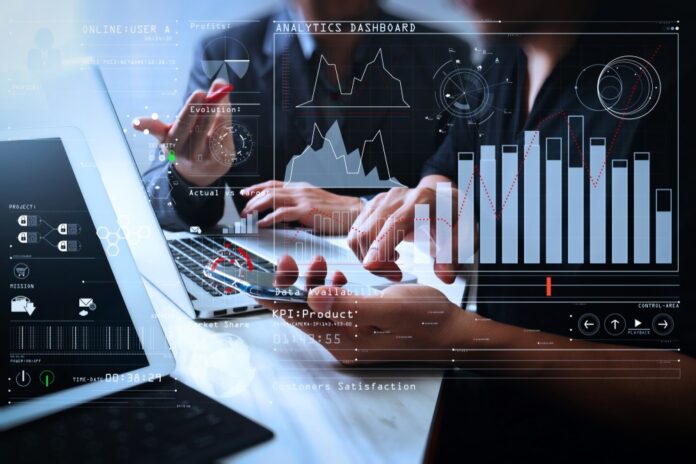Introduction:
In today’s rapidly evolving technological landscape, two powerful forces are gaining momentum: blockchain and artificial intelligence (AI). Individually, these technologies hold immense potential, but when combined, they become a dynamic duo that can reshape industries and revolutionize the way we interact with data and systems. In this blog post, we will explore the synergies between blockchain and AI and delve into the exciting applications they offer.
- Enhancing Data Security and Privacy:
Data security and privacy are paramount concerns in the digital age. Blockchain technology, with its decentralized and tamper-resistant ledger, provides an ideal solution. By leveraging blockchain’s immutability and cryptographic techniques, sensitive data can be securely stored and shared, ensuring transparency, integrity, and control over data access. This secure foundation lays the groundwork for AI algorithms to thrive.
- Validating Data Integrity and Trust:
AI algorithms heavily rely on vast amounts of data to train and make accurate predictions. However, concerns related to data authenticity, manipulation, and bias can undermine trust in AI outputs. Here, blockchain’s distributed nature plays a vital role. It enables the creation of verifiable and auditable records, ensuring the authenticity and integrity of data used for training models. This synergy between blockchain and AI fosters trust and transparency in the AI ecosystem.
- Federated Learning for Privacy-Preserving AI:
Federated learning is an innovative AI technique that allows multiple entities to collaboratively train a model without sharing their raw data. Blockchain can serve as a facilitator for coordinating and achieving consensus among the participating entities. By securely managing model updates, aggregating contributions, and rewarding participants, blockchain ensures privacy while harnessing the power of collective intelligence to enhance AI models.
- Building Decentralized AI Marketplaces:
Imagine a decentralized marketplace where individuals and organizations can securely exchange AI models, data, or AI services. Blockchain can make this a reality. By leveraging smart contracts, blockchain automates terms of usage, payments, and licensing agreements, creating a transparent and trusted environment for AI-related transactions. Such marketplaces foster innovation, collaboration, and fair compensation for AI creators and contributors.
- Transforming Supply Chain Management:
Supply chain management is an area where the combination of AI and blockchain can bring about transformative changes. AI algorithms can analyze supply chain data to optimize inventory, predict demand, detect anomalies, and streamline logistics. Meanwhile, blockchain can track and record every transaction and movement of goods, ensuring transparency, traceability, and preventing fraud or counterfeiting. Together, they enhance efficiency and trust throughout the supply chain.
- Decentralized AI Governance for Inclusive Decision-Making:
Decentralized decision-making and governance mechanisms are crucial in the realm of AI. Blockchain, with its smart contracts and decentralized autonomous organizations (DAOs), can create democratic and transparent frameworks for AI systems. Stakeholders can collectively participate in decision-making processes related to AI model training, deployment, and updates. This inclusive approach ensures diverse perspectives and fosters responsible and ethical AI development.
- Safeguarding Intellectual Property in the AI Era:
With the rise of AI-generated content, intellectual property protection becomes a pressing concern. Blockchain provides immutable records of creation and ownership, safeguarding the rights of AI creators. Smart contracts can automate licensing and royalty agreements, ensuring fair compensation for creators and encouraging the development of AI-generated works. Blockchain and AI work in tandem to empower creators and protect their intellectual property.
- Unleashing Potential through Data Marketplaces:
Blockchain-powered data marketplaces incentivize individuals to share their data with AI developers securely. Users maintain control over their data and can selectively share it with AI algorithms on the blockchain. In return, they receive rewards or compensation for contributing to data-driven AI advancements. These data marketplaces foster collaboration, innovation, and a fair exchange of value between data providers and AI developers.
- Revolutionizing Healthcare and Medical Research:
The healthcare industry can benefit immensely from the fusion of AI and blockchain. Blockchain secures patient data, enables interoperability between healthcare providers, and facilitates the secure sharing of research data. AI algorithms can assist in diagnosing diseases, identifying treatment options, and analyzing vast amounts of medical data for research purposes. Together, blockchain and AI pave the way for improved healthcare outcomes and accelerated medical discoveries.
Conclusion:
The convergence of blockchain and AI is an exciting frontier that holds tremendous potential. The combination of blockchain’s security, transparency, and decentralized nature with AI’s predictive and analytical capabilities opens up new avenues for innovation and disruption across industries. As these technologies continue to evolve, their integration will unleash a future where trust, privacy, and efficiency are seamlessly woven into the fabric of our digital ecosystem. The synergistic power of blockchain and AI is set to redefine how we interact with data, systems, and each other, unlocking a world of endless possibilities.



